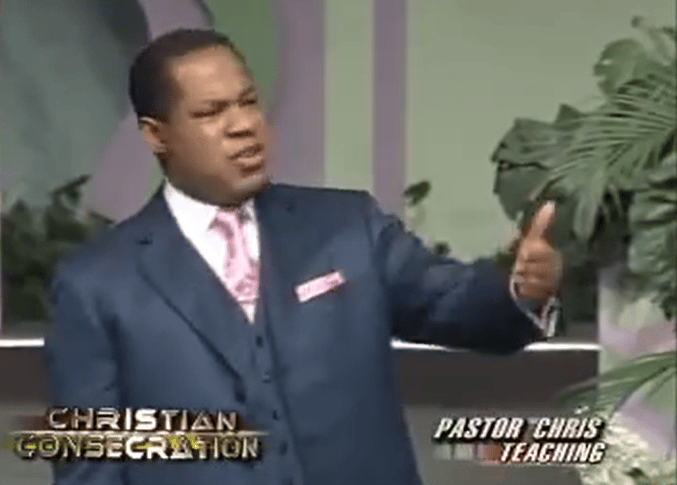Let's Flourish Together!
Message Review: Christian Consecration
In this teaching by Pastor Chris Oyakhilome; Christian consecration is vital for every Christian. It's important to have the understanding that as a Christian, you have been bought with a price and consequently, belong entirely to God, not to yourself. This reality is not a mere philosophical idea but a consequence of the Lordship of Jesus Christ over your life. Consecration, therefore, involves a deep understanding of the Lordship of Christ over one's life and a conscious dedication to His divine will and purposes. The core of Christian consecration is a divine setting apart for God's purpose. This study will explore this concept through its two fundamental aspects: a definitive separation from the world and a subsequent separation unto God.
BOOKS & MESSAGE REVIEW
Flourishing Family Outreach
9/6/20255 min read


Christian Consecration
This message review summarizes the core tenets of Christian consecration as presented in the provided "Christ Embassy cell Outline" and Pastor Chris Messages on Pastor Chris Digital Library https://www.pcdl.co/. It delves into the two fundamental aspects of consecration: separation from the world and separation unto God, highlighting key concepts, scriptural foundations, and practical implications.
I. Introduction to Christian Consecration
The central theme of Christian consecration is that as a Christian, one has been "bought with a price and consequently, belong entirely to God, not to yourself." This is not a philosophical idea but a direct consequence of Jesus Christ's Lordship over one's life. Consecration is defined as "a deep understanding of the Lordship of Christ over one's life and a conscious dedication to His divine will and purposes," ultimately representing "a divine setting apart for God's purpose."
II. Part 1: Separation from the World
The initial and foundational aspect of Christian consecration is a "total and complete separation from the world; its system and the dominion of sin." This separation is achieved through identification with Christ's death and resurrection.
A. Identification with Christ's Death and the Demise of the Old Man:
Rejection of Sinful Lifestyle: The teaching emphatically rejects the notion that divine grace permits the continuation of a sinful lifestyle. "Paul emphatically rejects the notion that divine grace permits the continuation of a sinful lifestyle. He states that Saints are 'dead to sin,' meaning their former relationship and subservience to sin have been severed." (Romans 6:1-2)
Crucifixion of the Old Nature: The "old man" (the unregenerate self subject to sin) has been "definitively crucified with Christ." (Romans 6:6) This breaks the authority of the "body of sin" (physical body dominated by sinful impulses) over the Christian's spirit.
Refutation of "Dual Nature" Doctrine: The text explicitly refutes the idea that Christians possess both an old and a new nature, stating, "The Bible teaches unequivocally that the old nature is dead, not coexisting with the new or resurfacing during temptation." This doctrine is seen as an inaccurate scriptural interpretation.
Abolished Former Identity: The former identity, aligned with the world and sin, is "completely abolished."
B. The Significance of Water Baptism in Separation:
Outward Demonstration: Water baptism serves as a "powerful outward demonstration and definitive act of separation from the world." (Romans 6:3-4)
Symbolic, Not Salvific: It is clarified that "Water baptism is not a salvific act; it is for individuals who have already received salvation through faith in Christ." It symbolizes identification with Christ's death and burial, marking a "complete break from their past life in the world."
C. Freedom from Sin: Redemption and the New Creation:
Freedom from Sin's Power: "For he that is dead is freed from sin." (Romans 6:7) Christ's death paid the price for humanity's sins, setting individuals free from sin's condemnation and power.
New Identity as a "New Creation": This separation culminates in the Christian's new identity as a "new creation." "Therefore if any man be in Christ, he is a new creature: old things are passed away; behold, all things are become new." (2 Corinthians 5:17) Christians are described as a "new species," a "new kind of man" with "no past in the old, worldly life." They are "first fruits" of God's creatures (James 1:18).
D. The Month of Conscious Truth (August 2025 Global Communion Service):
Truth as Reality: Pastor Chris declared August as 'the Month of Conscious Truth,' emphasizing that truth is reality and the importance of having a "present consciousness of it" beyond mere knowledge.
Living and Walking in the Word: "To live in the truth is to live in the Word. To walk in the truth is to walk in the Word. Anything less than living the Word is questioning the Truth."
Ministry of the Holy Spirit: The Holy Spirit is identified as the "Spirit of Truth, whose role is to guide us into all truth."
Meditation for Consciousness: Meditation is crucial for truth to become "conscious in your spirit," making the Word "readily available for life and decisions." Without it, truth "remains intellectual."
Dismantling False Mindsets: The idea that "nobody is perfect" is called a "satanic deception and a form of spiritual manipulation." Perfection is defined as "alignment with the Father's will and the manifestation of His righteousness in you."
Identity in Christ: Christians are admonished to "boldly embrace our identity in Christ; as that's truth," recognizing they are "not of the first Adam, but of the second and last Adam, a quickening spirit, recreated in righteousness and true holiness." Christianity is "the manifestation of truth," and believers are called to "live that truth consciously."
III. Part 2: Separation Unto God
Building on the definitive separation from the world, this part explores the "active separation unto God," involving "living a life purposefully dedicated to His service, His divine objectives, and His glory, as the practical outworking of the new life received in Christ."
A. Identification with Christ's Resurrection and Being "Alive Unto God":
Christianity Begins with Resurrection: While Christ's death provided redemption, "Christianity itself, and the new life of the Christian, truly begin with Christ's resurrection."
Salvation Linked to Resurrection: Salvation is "intrinsically linked" to Christ's resurrection. "That if thou shalt confess with thy mouth the Lord Jesus, and shalt believe in thine heart that God hath raised him from the dead, thou shalt be saved." (Romans 10:9)
Living for God's Purposes: Christians identify not merely with Christ's death but with the "resurrected Christ, who is now alive for God's eternal purposes." "but in that he liveth, he liveth unto God." (Romans 6:10)
B. Walking in Faith and Love:
Dominion of Sin Broken: "Now that you're 'alive unto God', the dominion of sin is broken in the life of a Christian." (Romans 6:12)
Superior Life: The Christian possesses a "superior life that is not subject to sin's dominion."
Living by Faith and Love: To live an "authentic Christian life," one "must live a life of faith that works by love. In this state, it's impossible to do wrong."
C. Yielding Your Members to God for Service:
Active Presentation of Self: Consecration unto God involves a "deliberate act of presentation" of one's entire being to God. "Neither yield ye your members as instruments of unrighteousness unto sin: but yield yourselves unto God, as those that are alive from the dead, and your members as instruments of righteousness unto God." (Romans 6:13)
Conscious, Volitional Act: This "yielding" is a "conscious, volitional act of dedicating every faculty and capability as instruments for righteousness, serving God's purposes."
Body as Temple of the Holy Spirit: The body is the "temple of the Holy Ghost," and believers "are not your own." (1 Corinthians 6:19)
Living Not Unto Themselves: "And that he died for all, that they which live should not henceforth live unto themselves, but unto him which died for them, and rose again." (2 Corinthians 5:15)
D. Being A "Love Slave" of Jesus Christ:
Paul's Example: The Apostle Paul's self-identification as a "born slave" or doulos of Jesus Christ (e.g., Romans 1:1) exemplifies true consecration.
Joyful, Willing Belonging: This term signifies "not forced servitude, but a joyful, willing, and loving belonging to Christ." It is the "ultimate expression of a heart entirely devoted to His will and service, finding its highest purpose and joy in His ownership."
IV. Conclusion
Christian consecration is a two-fold process beginning with a "definitive separation from the world" through identification with Christ's death and the resulting new creation. This foundational understanding of being "dead to sin and freed from its power" lays the groundwork for the second aspect: "the active and joyful separation unto God for His divine purposes." This active separation is manifested by living "alive unto God" through identification with Christ's resurrection, consciously choosing to live above sin through faith and love, and joyfully yielding one's entire being as instruments of righteousness for God's service and glory. This life of full dedication, embraced with a "love slave" mentality, promises "a life of joy, security, and unshakeable purpose."
Subscribe to Pastor Chris Library for the full message; https://www.pcdl.co/
You can also read the message note here on https://flourishingfamily.co.uk/christian-consecration-message-note

